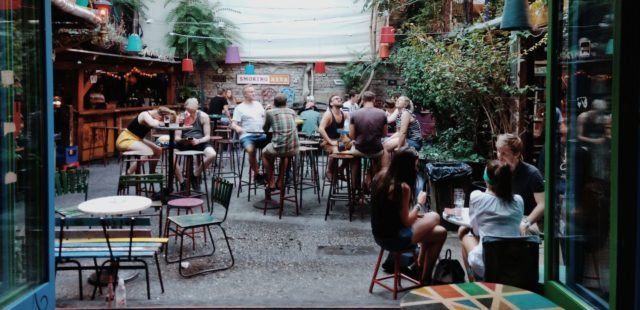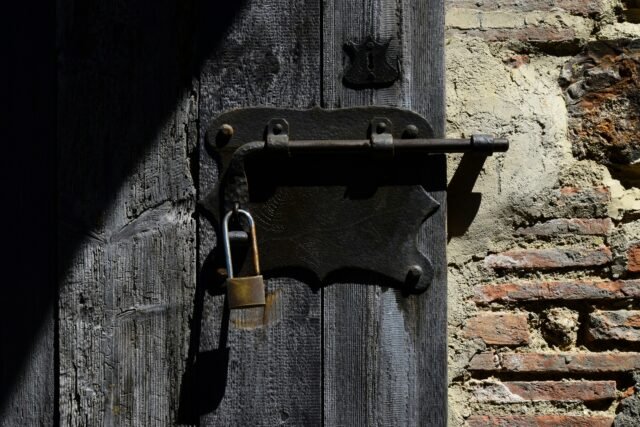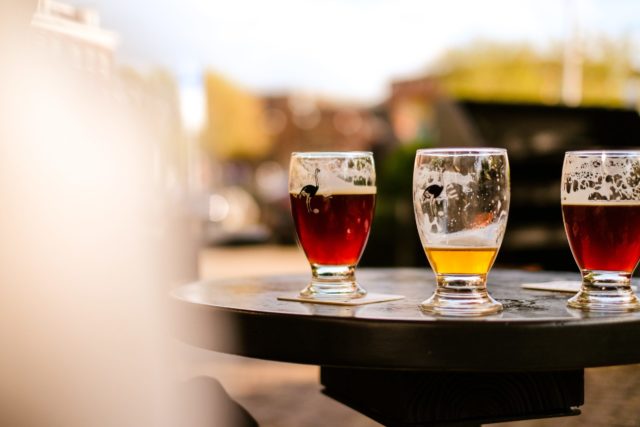Published:
Last modified:
A guide to the reawakening of hospitality

Introduction
In light of the Government announcement that the further easing of restrictions through step 4 has been delayed until the 19th July 2021 the question remains whether the hospitality industry will ever fully return to how it was pre-pandemic or will some of the measures now in place remain and become the new normal for licensed premises.
The pandemic has led to all venues being forced to introduce new safeguards in order to open and some having to diversify to be able to open – for example many nightclubs have effectively turned into pubs to reopen, bringing in tables and chairs for customers to be seated and served. In terms of the measures which may remain in place long term if the pandemic continues below is a summary of the key things to consider in your venue:
- Social Distancing – if this continues by regulation or guidance, or should customers simply feel safer with less people in venues, then it will have an impact on your capacity as you may need to ensure that there is sufficient distance between groups of customers (even if the number of people who can be together is lifted). This applies not only to customer trading space but to toilets and walkways for example as well;
- Table Service – this will be a positive for many customers and after so long trading in this way some customers may well come to expect it. This again may impact not only on your venue’s capacity, but on your staffing numbers;
- Bookings – many venues have taken to only accepting customers who have made a booking and are not taking walk-in customers, and this is certainly something to be considered. The positive is that it allows you to know numbers of customers expected at any given time and plan staffing, with the negative being if customers do not turn up you are left with empty tables. One option here is to take a non-refundable deposit from customers booking;
- Test and Trace – with personal information being required to be taken now for every single customer this is a key point. Whilst many people will have the app and record the information this way there will be customers where you have to record their details manually and it should be considered how this is recorded and stored with maybe a more permanent procedure put in place if it continues.

Thinking outside the box
Ever since the Licensing Act 2003 was first mooted people have talked about a “café culture”, with an early Select Committee referring to an “urban renaissance”, concluding with the words “Bologna in Birmingham, Madrid in Manchester, why not?” Nobody could have predicted that the closest we would ever get to a café culture was not due to a sudden change in cultural mores or a balmy additional 10 degrees in the average temperature, but a pandemic.
COVID forced us outside. Operating an outside business has many benefits and of course some drawbacks, but here are some points to consider as we move out of lockdown, if you want to continue to use outside space:
- The temporary relaxation of planning regulations to allow pubs and restaurants to operate as takeaways was due to expire on 23rd March 2021 but has been extended now to 23rd March 2022. Additional licensing requirements still apply.
- On land owned by the Local Authority you can apply for a cheap pavement licence (£100) allowing you to place removable furniture on the highway. This fast track permission scheme, originally brought in on July 2020 to help the hospitality industry is likely to be extended until 30th September 2022. Speak to your local council for more details.
- Even if your alcohol licence only provides for “on” sales, you are permitted to have “off” sales, subject to certain criteria, allowing for deliveries and consumption off your premises, subject to a cut-off time of 11pm. Permission will lapse on 30th September 2021 but again we expect it to be extended by the Government until 30th September 2022.
- If you have conditions on an existing on and off licence which prevent deliveries or require off sales only to be in sealed containers, these equally will be suspended up until 30th September 2021, hopefully September 2022.
- When maximising these relaxations in any outside area, be mindful that existing laws regarding fire safety, the smoking ban and general health and safety still apply. Make sure that there are no trip hazards or misleading fire exit signage for example, and that any gas or electrical equipment (e.g. heaters and lighting) is properly installed and maintained. Assess and address whether there are any combustible materials within structures, and if there are separate structures that they are appropriately distanced.
- A fire risk assessment of your outside area should reveal any potential hazards.
- Consider the use of CCTV for, and staff monitoring of, previously unused outside areas, particularly with regard to drugs or underage drinking.
- Licensing – depending on your outside area, you may need to apply to amend your premises licence layout plans or possibly even certain licence conditions, by applying to your Licensing Authority.

Secure it, or Lose it: the impact of insolvency on premises licences
The plight of the hospitality industry in the pandemic has been well documented and sadly stories of insolvency and premises closures are currently all too common. It has therefore never been more important for licensees to safeguard their premises licences and for buyers and landlords to be aware of the potential pitfalls of lapsed licences. Below are a few helpful hints and reminders:-
A premises licence automatically lapses at the onset of any form of insolvency of the premises licence holder, but can be “resurrected” as outlined below.
If a licence holder is about to be made insolvent or bankrupt then they should ensure that the premises licence is transferred to a solvent company or individual prior to the insolvency event. If a premises licence lapses it is of course an offence to carry on any licensable activities at the premises.
If it is not possible to find another company or individual to transfer the premises licence to, then there are two options available to “resurrect” the premises licence after it lapses.
Firstly, an insolvency practitioner can submit an interim authority notice (after the insolvency event) which allows them to hold the premises licence for a maximum period of three months within which period an application to transfer the licence to a company or individual must be made, otherwise the licence lapses permanently. Alternatively, within 28 days of the onset of insolvency the premises licence can be transferred which would again have the effect of “resurrecting” the licence. However, if this deadline is missed then the licence will be lost and cannot be “resurrected”. In that case a new premises licence application would be required and there is no guarantee that a new licence will be granted with the same permissions as the lapsed licence.
A premises licence is a valuable asset and can add significant value to a property, especially within cumulative impact areas where Councils are extremely reluctant to grant new licences. We therefore advise landlords whose licensed premises are operated by a tenant to consider applying for ‘shadow premises licences’ to protect their assets in case a tenant licence holder becomes insolvent or bankrupt.
The term ‘shadow premises licence’ describes the situation where a premises licence is granted to one party in respect of a premises where another party already holds a separate licence. Shadow licences are typically granted on the same terms as the existing licence being operated by the tenant.
It is imperative that any buyers looking to acquire licensed premises make appropriate licensing due diligence enquiries before entering into an agreement. Although a seller may present a copy of a premises licence, the buyer should ensure that the licence is up to date and is, and previously has been, held in the name of an active company or individual.
The effect of insolvency on premises licences is complex and these comments are only a summary, so we strongly advise that any affected parties seek legal advice as soon as possible.

Open All Hours
The Covid 19 pandemic has changed the face of many towns and cities and unfortunately, we have seen the closure of many nightclubs up and down the country. Other licensed venues may now look at whether there may be an opportunity to extend their hours.
Before you look to submit an application to extend your hours to the Licensing Authority you may want to take a moment to consider the following:
- Think about the landscape of your local area. Have one or more late night venues closed down in the local area and as such will there be demand in this area for premises with later hours on certain days? Do you need to think about terminal hours and the prevention of large numbers of customers exiting venues all at the same time?
- Look at your current planning permission for the premises. There may well be restrictions on hours for the premises.
- If you have a lease on the premises, check your lease documents to see if there are any restrictions.
- Take a look at the Council’s Statement of Licensing Policy. This is vital to ensure that you understand if there is a Cumulative Impact Policy in place. The effect of having a Cumulative Impact Policy usually means that material variation applications which receive relevant representations will be refused unless the applicant can demonstrate that granting the application will not add to existing levels of, most commonly, crime and anti-social behaviour. You will need to carefully consider the extension of hours and whether you will need to offer any additional conditions. You will also want to check whether, if your application is granted, you will need to pay a Late Night Levy; an additional cost to your business.
- You may wish to seek guidance from your local Licensing, Police and Environmental Health Officers before submitting any application. Early discussions with the Authorities help draw out whether there will be any problems with your proposed extension of hours.
- It is a good idea to fully review your licence before submitting any application for a variation. Think about old or conflicting conditions, also check any outdated restrictions on your hours for licensable activities and opening hours on days such as Christmas Day and Good Friday. Check to see if your premises licence contains any last admission times which could impact upon or conflict with your proposed extension of hours. Also, don’t forget to check if you have any restrictions regarding the times any external areas can be used as you may wish to amend these too.

Getting Delivery Right
With the rise in home delivery and takeaway in recent years, accelerated by the pandemic, many operators such as our online delivery and restaurant clients have seen this as a great way to expand business. However, it is not without licensing implications, which operators must address to ensure they are compliant with the law. Here are key points to consider, however if in doubt, seek legal advice.
- The sale of alcohol by retail for takeaway or via delivery is a licensable activity and will require authorisation under a premises licence (and as such will also require a Designated Premises Supervisor in place who must have a current personal licence).
- The premises from which the alcohol is selected for an order is the location that will need to be licensed (e.g. for deliveries this will be the warehouse where alcohol is stored and bagged for customers rather than the call centre where orders are taken).
- Your premises licence will need to permit off-sales of alcohol and you should check there are no conditions on your premises licence that restrict off-sales or (where relevant) any such restrictions under planning or your lease.
- The Business and Planning Act allows certain premises licensed for on sales to also provide off-sales where their premises licence would not otherwise permit this, for a limited period (likely to be until 30 September 2022). However specific conditions on an individual premises licence and exemptions may apply.
- Sales to underage customers is one of the biggest risks linked to deliveries of alcohol. Consider how your business model will address this. There is a mandatory condition attached to premises licences requiring that an age verification policy is in place and you may have other applicable conditions on your licence. Consider age verification measures at the point of order (i.e. before an order is taken online or over the telephone) and also at the point of delivery.
- You should also consider potential for public nuisance such as noise from delivery drivers operating from the premises and the effects on local residents – consider measures you can put in place to mitigate this, including where delivery vehicles are parked at the premises and training on driver conduct on picking up and delivering orders.
- We would recommend consulting with the responsible authorities prior to applying for a new licence or variation to an existing licence to permit takeaway or deliveries of alcohol.
- You should ensure any conditions agreed on your premises licence are operationally workable for your business model. For example, you will need to ensure that whoever carries out the deliveries (whether your own staff or a third party) complies with the conditions, as the premises licence holder and designated premises supervisor are liable for any breaches of the licence. If you use a third-party delivery company then you may wish to check that you are satisfied with the company’s age verification policy and procedures and, if necessary, provide training.
- As part of your delivery or takeaway service, if you intend to sell hot food and drink between 23:00 and 05:00 hours this is also a licensable activity, and you will need to ensure the premises is licensed for Late Night Refreshment.

Unlocked
Last year we published a detailed Coronavirus pre-opening checklist, and whilst the process of re-opening has to many been one of tortuous evolution rather than speedy revolution, many of those considerations remain relevant today. So, whatever stage you are at with re-opening your hospitality business, here are some key points:
- Is your current DPS still working and how many personal licence holders do you have on site?;
- Is your premises licence summary and Section 57 Notice (Licensing Act 2003) on display? Full licences and gaming permits should be retained on site;
- Are all annual fees paid up to date (Licensing and Gambling, including any machine permits and payment of Late Night Levy where applicable);
- If you are relying on the Business & Planning Act to provide off-sales, are you displaying a correct notice?;
- Has your business undergone any restructuring, such as a CVA? Do all licences remain in force and have they been transferred to a new operating company, where relevant;
- Is your licence still fit for purpose – extended hours, licensed areas, conditions;
- Is this a time to review your licence conditions, general operation, the impact of social distancing and any capacity restrictions;
- Consider your external areas and whether licence variations and street trading permissions are required;
- Have you made any changes to the internal or external layout of your premises and should you be updating your licence plans;
- Staff training – induction for new staff members, or refresher training for existing staff. Consider your revised operation under the ongoing social distancing measures and your covid-19 risk assessment;
- Should you liaise with neighbours, particularly as the better summer weather seems to have arrived? Ambient noise levels are likely to increase and neighbours may appreciate an update on your plans.

